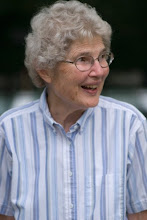 Guest Post by Vilo Elisabeth
Guest Post by Vilo ElisabethIt's funny what will trigger a memory, and when it will happen. I'm sitting in the Denver airport, on a layover on my way to Utah for my brother's wedding. It's a little early for lunch local time, but my stomach is still two hours behind in sync with New York, where I had breakfast 4 hours ago. Luckily, the restaurants in the airport are used to problems like this, and are already serving lunch type food. I decide to splurge, and momentarily suppress my vegetarian leanings. I get 2 pieces of rotisserie chicken with a side of garlic mashed potatoes, one of the more expensive items on the menu.
Rotisserie chicken is one of my dad's favorites. He sometimes likes to pick up a small one at the grocery store, especially now that much of the family is vegetarian. He'll spend the next few days working his way through it, eating it by itself or adding it to tacos or another dish. I think of my dad when I order the chicken. But then, while I'm pulling the meat away from the bone I think of his grandfather, my great-grandfather, John Westwood, who we call Pop. I remember eating chicken one time at his house, and him demonstrating to me that there was still plenty of meat left on the piece I was finished with. I am the type to leave scraps here and there, so I don't have to get too messy or think too hard about what exactly it is I'm eating. Pop, however, was a firm believer in savoring every last bit. I smile to myself, remembering Grandma Betty telling us about my cousin Ethan, at age 4 or so, after Pop had passed away, wondering if Pop was able to have a picnic of fried chicken in heaven, since it was such a beautiful day, and that was one of Pop's favorite things to do. Grandma Betty refrained from remarking to Ethan that it wouldn't really be heaven for the chicken involved.
I am glad to have these memories of Pop surface as I get ready to see my family, and witness it expand through my brother's marriage. I wish that Grandma Betty, Pop, Grandpa Art, and Grandma Judy could all be here with us, celebrating. But maybe they'll all get together and have a picnic in heaven in our honor.

